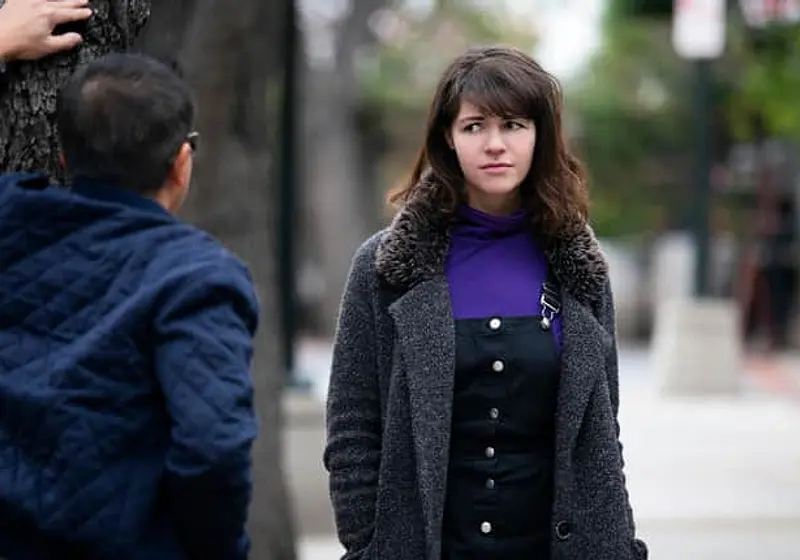Catcalling: it’s disgusting, degrading, and disrespectful. It reduces women from people with feelings down to objects of insignificance. It's also one of the most common forms of street harassment.
It can happen at work, at school, on the street, on a bus, or anywhere else. Harassment in any form is wrong. From the time we were in primary school, we were taught many rules, the biggest one being “Treat people how you want to be treated.” However, there are many people that don't follow this moral code, and abuse their position of power to mistreat others.
Catcalling has been an issue globally for years, that has instilled fear in its victims, but how do we as a society address the problem and put it to an end? In order to do that, let's figure out what exactly defines catcalling first.
Let us slide into your dms 🥰
Get notified of top trending articles like this one every week! (we won't spam you)What is Catcalling? (and why men do it)
Catcalling is defined by the University of Missouri-Kansas City Women's Center as:
"When an individual whistles, shouts, or makes sexual comments toward another individual as they are walking by."
-University of Missouri-Kansas City Women's Center
Catcalling falls under the umbrella term of sexual harassment. Catcalling is commonly used as a flirting tactic on women to get them to pursue men romantically. There are many reasons and motivations men may have for catcalling women, but a study conducted on catcalling by Kari Walton and Cory Pederson from Kwantlen Polytechnic University in Surrey, British Columbia, Canada stated the following: "The most frequently reported motivations for catcalling were to flirt with and to express sexual interest in the target, and the most desired reaction from recipients was friendliness. Further, men who reported having engaged in catcalling demonstrated higher levels of hostile sexism, self-ascribed masculinity, social dominance orientation, and tolerance of sexual harassment." To put it simply, the ignorant men spewing uncomfortable comments in public to innocent women, do it for one reason--to assert power and dominance. To these kinds of men, it gives them a sort of adrenaline high to assert control over women, even if it means making them uncomfortable. However, the negative impacts of catcalling don't just end in catcalling itself. The negative ramifications also transfer over into the media's portrayal of women as a whole. The reason why mistreatment against women is so underaddressed in the media is because, often times, the media itself are the ones portraying it. Leading to my next point, women vs. the media.

Take the Quiz: Which Generation Matches Your Personality?
Discover the generation you truly belong to!
Women vs. the Media
Since its inception, women have been portrayed in a demeaning way in the media. Whether it be in the context of them being meek and submissive to their partners, or hyper-sexualized to the point of dehumanization, women have always been painted in an unflattering way.
It hasn’t been until recently that women are finally getting the right representation that they've always deserved. We are now seeing an influx of young women and girls reclaim the power they didn't have in the media 20-30 years ago, and we are also seeing women speak out openly against this kind of harassment on television, social media and movies. Here is an example below:
Even though we're seeing positive female representation now than ever, there is still a long way to go, and the victims of catcalling are still feeling its effects, leading to the next point, the damaging effects of catcalling.
The Damaging Effects of Catcalling
Let’s break this down: ”Hey baby, you look beautiful today!” is NOT a compliment. "You look gorgeous, I would marry you!" is NOT a compliment, and whistling as a woman walks by on the street is NOT a compliment. Girls and women don't feel flattered by these comments, instead it instills fear and makes us feel unsafe. No woman or girl has been catcalled on the street and thought to themselves, "I definitely want to go out with that guy!" What seems like an innocent gesture made with no malicious intent may seem like a compliment to one person, and may come off as predatory and creepy to another.
Essentially, it all boils down to one thing: perception. But just because this is the case, don't assume that all women won't take issue with being catcalled. Catcalling is and can be very damaging to those who get catcalled, as it has long-term negative impacts on its victims. According to a paper written by lawyer Noemi Fernández Some of the adverse effects of catcalling include:
- Street harassment can cause emotional harm, including feelings of anger, frustration, and humiliation.
- Fear of rape/sexual assault
- Physical symptoms such as trembling heart and shaky and sweaty palms
- Hesitation to walk certain roads or go to certain places
Because of this, many women suffer from anxiety when they have to leave their homes. Many are also fearful of walking alone, or being put in compromising situations. Numerous women do not speak out against men who catcall them for fear of their own safety, because of the amount of women who have been killed for ignoring/standing up to their cat callers.
Due to the fact that catcalling and harassment has had such a negative impact on society as a whole, here are ways we can combat it, and the future of catcalling.
Source: Talkspace.com
The Future of Catcalling: What Can You Do to Help?
The sad truth is, as long as there are insecure men in this world, catcalling won’t be going anywhere anytime soon. The good news is, there are things that you can do to combat it, like, for instance:
- Donate/support organizations like Right to Be (formerly known as Hollaback!) that actively fight against street harassment
- Keep other women safe. You don't have to scream or swear at people for being inappropriate, because that will only aggravate the situation. Be mindful and protect victims of this kind of abuse. There's strength in numbers.
- Educate people on the effects of harassment and why it is wrong.
In conclusion, catcalling has a long way to go in terms of getting rid of it, but if we can advocate against it maybe one day, we will be able to walk the streets free.











%20(2)%20estee.jpg)



